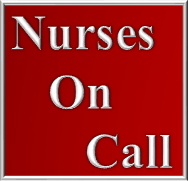If you’re in need of a reliable nurse staffing agency that can provide top-quality healthcare professionals for your facility, look no further than Nurses On Call, Inc. With over 25 years of experience in matching their staff to facility needs, Nurses On Call ensures that you will have competent and experienced RNs and LPNs at your disposal. Whether you require temporary or semi-permanent staff augmentation, Nurses On Call is here to provide you with the 24/7 on-call service and support you need. With a local support staff and an on-site Director of Nursing, they offer a full-service experience that is tailored to meet your specific requirements. Give them a call today at 850-474-9803 and discover how they can help advance your career. Don’t miss out on the opportunity to build long-term relationships with healthcare facilities through Nurses On Call!
Understanding the Importance of Long-Term Relationships
In the healthcare industry, building long-term relationships with healthcare facilities is essential for various reasons. Firstly, it allows healthcare professionals to establish trust and credibility with the facilities they serve. By consistently providing high-quality healthcare services, healthcare professionals can gain the confidence of the facility administrators and staff. This trust and credibility can lead to better collaboration, smoother workflows, and improved patient care outcomes.
Long-term relationships also have a significant impact on the quality of patient care. When healthcare professionals have a deep understanding of the facility’s processes, preferences, and patient population, they can tailor their services to meet specific requirements. This level of familiarity enables healthcare professionals to deliver more personalized care, resulting in better patient experiences and outcomes.
Furthermore, developing long-term relationships with healthcare facilities can open up new career opportunities for healthcare professionals. By demonstrating professionalism, accountability, and a commitment to excellence, healthcare professionals can become valued members of the facility’s team. These long-term partnerships may lead to promotions, extended contracts, and even the possibility of permanent employment.
Establishing Trust and Credibility
One of the key elements in building long-term relationships with healthcare facilities is providing high-quality healthcare services. When healthcare professionals consistently exceed expectations and deliver exceptional care, it builds trust and credibility with the facility. By showcasing their expertise, compassion, and dedication, healthcare professionals can foster positive relationships with both the facility administrators and the staff.
Consistent communication and transparency are also vital in establishing trust and credibility. By regularly updating the facility administrators and staff on important matters, healthcare professionals demonstrate their commitment to open and honest communication. This transparency helps create a collaborative atmosphere where issues can be addressed promptly and effectively, leading to improved patient care.
Delivering on promises and meeting expectations is another crucial aspect of building trust and credibility. Healthcare professionals must strive to fulfill their commitments to the facility and consistently deliver the level of care they promise. By consistently meeting or exceeding expectations, healthcare professionals can instill confidence in the facility’s administrators and staff, creating a strong foundation for a long-term relationship.
Developing an Effective Communication Strategy
To build and maintain long-term relationships with healthcare facilities, healthcare professionals must develop an effective communication strategy. Understanding the needs and preferences of the facility is key to tailoring communication methods that best suit their requirements. Whether it’s through phone calls, emails, or in-person meetings, healthcare professionals should adapt their communication style to ensure effective and meaningful interactions.
Regularly providing updates and reports is essential in maintaining open lines of communication. Healthcare professionals should keep facility administrators and staff informed about their progress, any challenges they may be facing, and any notable achievements. By sharing timely and relevant information, healthcare professionals can demonstrate their professionalism and commitment to transparency.
Utilizing various communication channels is also crucial in developing an effective communication strategy. Healthcare professionals should be familiar with the facility’s preferred communication channels, such as specific software platforms or internal messaging systems. By utilizing the facility’s preferred methods, healthcare professionals can ensure that their messages reach the intended recipients in a timely and efficient manner.
Tailoring Services to Meet Facility Requirements
To build and sustain long-term relationships with healthcare facilities, healthcare professionals must be adaptable and flexible in meeting facility requirements. This includes adapting to specific staffing needs. By understanding the facility’s staffing demands and adjusting their schedules accordingly, healthcare professionals can provide the necessary support when and where it is needed most.
Offering flexible scheduling options is another way to tailor services to meet facility requirements. Healthcare professionals should be willing to accommodate the facility’s preferred shift patterns and adjust their availability accordingly. This flexibility not only helps the facility maintain optimal staffing levels but also shows a commitment to working collaboratively in meeting their needs.
Providing ongoing training and education opportunities is crucial in tailoring services to meet the facility’s requirements. By staying up to date with the latest advancements in healthcare and participating in relevant training programs, healthcare professionals can continuously improve their skills and knowledge. This commitment to professional development ensures that the facility receives the highest standard of care while also fostering personal and career growth for the healthcare professional.
Effectively Managing Staffing Challenges
Addressing staffing shortages promptly is vital in maintaining long-term relationships with healthcare facilities. When unexpected staffing challenges arise, healthcare professionals should work closely with the facility administrators to find suitable solutions. Whether it’s bringing in additional staff or adjusting schedules, healthcare professionals should be proactive in resolving staffing issues to ensure uninterrupted patient care.
Offering reliable backup support is another way to effectively manage staffing challenges. By collaborating with other healthcare professionals within their network or with the support of a staffing agency, healthcare professionals can ensure that there is always a backup plan in place. Having a reliable backup support system minimizes disruptions to patient care and reassures the facility administrators of their commitment to providing reliable staffing solutions.
Collaborating with facilities to optimize staffing levels is also essential. By analyzing patient census and acuity trends, healthcare professionals can work with facility administrators to forecast staffing needs and adjust accordingly. This proactive approach not only helps the facility maintain optimal staffing levels but also demonstrates the healthcare professional’s commitment to strategically managing resources and ensuring the highest quality of patient care.
Demonstrating Professionalism and Accountability
Maintaining professional behavior at all times is a fundamental aspect of building and nurturing long-term relationships with healthcare facilities. Healthcare professionals should adhere to industry standards, ethical guidelines, and facility policies to demonstrate their commitment to professionalism. This includes maintaining confidentiality, respecting boundaries, and acting in the best interest of the patients and the facility.
Taking responsibility for mistakes and resolving issues efficiently is another essential element of professionalism and accountability. If a mistake or issue occurs, healthcare professionals should promptly acknowledge the error, take steps to rectify the situation, and communicate openly with the facility administrators and staff. By demonstrating accountability and a proactive approach to problem-solving, healthcare professionals can reinforce trust and credibility with the facility.
Ensuring compliance with industry regulations is also crucial in demonstrating professionalism and accountability. Healthcare professionals must stay up to date with the ever-changing laws and regulations governing their practice and ensure that they are adhered to at all times. By prioritizing compliance, healthcare professionals can assure facility administrators that they are committed to providing care that is safe, ethical, and of the highest quality.
Nurturing Positive Relationships with Facility Administrators
Building rapport and establishing personal connections with facility administrators is essential in cultivating long-term relationships. Healthcare professionals should take the time to get to know the administrators on a professional level, understand their goals and challenges, and find ways to align their own services with the facility’s objectives. By showing genuine interest and empathy, healthcare professionals can develop a mutually beneficial partnership.
Understanding the administrators’ goals and challenges allows healthcare professionals to provide value-added services and solutions. By proactively identifying areas for improvement or offering suggestions for enhancing workflow efficiency, healthcare professionals can demonstrate their commitment to supporting the facility’s success. This willingness to go above and beyond strengthens the relationship and positions the healthcare professional as a trusted partner.
Providing value-added services and solutions is another way to nurture positive relationships with facility administrators. Whether it’s offering educational resources, implementing process improvements, or assisting with quality improvement initiatives, healthcare professionals should continuously seek opportunities to add value to the facility’s operations. By positioning themselves as valuable contributors, healthcare professionals can solidify their role as a trusted and integral part of the facility’s team.
Leveraging Technology for Efficient Operations
In today’s digital age, leveraging technology is essential for efficient operations and building long-term relationships with healthcare facilities. Healthcare professionals should utilize advanced scheduling and staffing software to streamline the staffing process, ensure accurate record-keeping, and improve overall efficiency. By embracing technology, healthcare professionals can provide the facility with an automated and seamless experience.
Streamlining administrative processes is another benefit of leveraging technology. By utilizing electronic health record systems, automated billing systems, and digital documentation tools, healthcare professionals can reduce paperwork, minimize errors, and enhance the overall administrative efficiency. This allows more time to be dedicated to patient care and strengthens the bond between healthcare professionals and the facility.
Enhancing communication and collaboration is another advantage of technology. By utilizing telecommunication tools, internal messaging systems, and video conferencing platforms, healthcare professionals can easily connect with facility administrators and staff, regardless of location. This real-time communication fosters a sense of teamwork and ensures that everyone is on the same page, regardless of physical proximity.
Seeking Feedback and Continuous Improvement
To continuously improve and strengthen long-term relationships with healthcare facilities, seeking feedback is essential. Healthcare professionals should regularly solicit feedback from the facility administrators, staff, and even patients to gain insights into areas for improvement. By actively seeking suggestions and opinions, healthcare professionals show a commitment to continuous learning and growth.
Addressing concerns and making necessary improvements is the next step in the feedback process. When feedback is received, healthcare professionals should take it seriously, investigate the issues raised, and implement appropriate changes. By demonstrating responsiveness and a willingness to improve, healthcare professionals can foster a culture of continuous improvement and strengthen their relationships with the facility.
Implementing best practices and industry standards is another element of continuous improvement. By staying up to date with the latest research, evidence-based guidelines, and industry trends, healthcare professionals can consistently provide the best possible care. Being proactive in implementing best practices not only benefits the patients but also showcases the healthcare professional’s commitment to excellence and continuous growth.
Promoting Nurses On Call as a Partner of Choice
As a nurse staffing agency, Nurses On Call is an ideal partner for establishing long-term relationships with healthcare facilities. Nurses On Call has over 25 years of experience matching their staff to facility needs, ensuring the highest quality of care. Their nurses are RNs and LPNs with at least one year of current nursing experience, making them highly qualified and capable of meeting any facility’s requirements.
Nurses On Call provides 24/7 on-call service, a local support staff, and an on-site Director of Nursing, offering a full-service experience to healthcare facilities. By partnering with Nurses On Call, facilities gain access to a reliable and dedicated team of healthcare professionals who can seamlessly integrate into their existing staff on a temporary or semi-permanent basis as needed.
Facilities that partner with Nurses On Call can expect exceptional service, reliability, and quality. Nurses On Call takes pride in their commitment to professionalism, accountability, and exceeding expectations. By choosing Nurses On Call as a partner, healthcare facilities can benefit from the expertise and dedication of their skilled nurses, ensuring the highest level of patient care.
In conclusion, building long-term relationships with healthcare facilities is crucial for healthcare professionals. These relationships can lead to numerous benefits such as improved patient care, career opportunities, and overall professional growth. By establishing trust and credibility, developing effective communication strategies, tailoring services, managing staffing challenges, demonstrating professionalism, nurturing positive relationships, leveraging technology, seeking feedback, and partnering with reputable staffing agencies like Nurses On Call, healthcare professionals can build strong and lasting partnerships that benefit both themselves and the facilities they serve.





